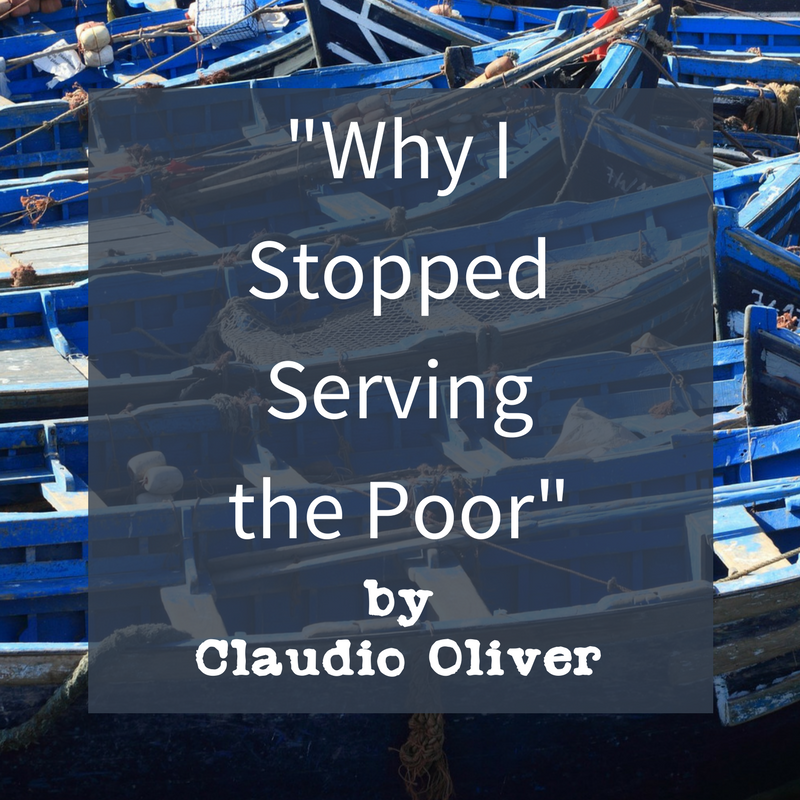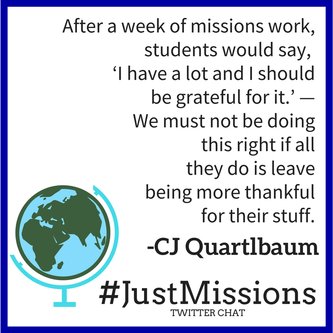 CJ grew up in Brooklyn, New York, in a culturally Christian home. “But I never remember reading scripture or praying together as a family,” he said. His mom is from Trinidad and his dad is from Harlem. They attended a church that he said gave him the idea that Christianity wasn’t a relationship. “Imagine the story of a missionary who goes and tells a group of people about Jesus. The first generation grasps a picture of who God is, but by the time you get to the third generation, they hate the faith because all they know are the rules. I grew up in the second generation where it was assumed we all knew the Gospel. We were taught that Christianity was kind of like a light switch you flip it on or off, but nothing in my heart was actually changed.” Even so, CJ became a spoken word artist performing at area churches. “That started when I was 13. My mother started sending me to a writing class on Saturday mornings. That’s when my love for writing really started to be nurtured. One of the writing blocks we did in the semester was poetry. I enjoyed it, and they published a few of my poems. I wrote a poem called ‘I Am a Christian’ and performed it at church. They loved it. So I started doing youth rallies with a group of friends all around the tri-state area. We were known as Word Play. God just used that vehicle ultimately to draw me to him. I was on a stage pointing to a Jesus I didn’t know,” he said. Although he admits he would memorize the Bible, at one point having the whole book of Ephesians memorized, “I knew what I was talking about, but it just never pierced my heart.” But on April 10, 2010, CJ went to a conference in Philly, and heard the Good News, for what felt like the first time. “I heard Matt Chandler preaching. He said, ‘Why we do what we do?’ Then he went through creation, fall, redemption. ‘You don’t become a Christian because you were born one, because you are a good person, because you do ministry …’ Every reason I had to say I was a Christian, he beautifully dismantled. In that moment the Holy Spirit opened my eyes, a day that will forever stand out in my mind,” he said. CJ then went to Western Seminary and studied Biblical Studies. “After seminary, I went back to finance because I didn’t know what else to do. The last job was just awful,” he said. CJ said that his wife ended up going on a women’s retreat where a friend told her she was leaving her job and that CJ should apply for it. “It turned out to be a job as a director of this short-term missions organization.” He applied and he got the job. CJ said that he started noticing things as he served as the City Director at CSM. “There were noticeable cracks in the system,” he said. “After a week of missions work, students would say, ‘I appreciate my things more.’ From June to August we have 96 students a week. I’m hearing the same thing: ‘I have a lot and I should be grateful for it.’ We must not be doing this right if all they do is leave being more thankful for their stuff,” he said. This caused him to make some intentional changes in how he ran the program. “Everything we do now is geared to having the Gospel at the center. The biblical definition of justice is the disadvantaging of yourself to see the flourishing of another. How can I get the students who come through to see that? I try to gear our trips toward this is the biblical definition of justice and what does that mean for them when they go back home,” he said. “A lot of our students tend to be suburban students from affluent communities. Once a week, I ask them a bunch of questions: What’s one thing that challenged you? One thing you noticed? What do you see here that is similar to your life just presented differently? I started to talk to students individually and poke at their faith a bit. Why are you here? Why do you believe what you believe? I started to realize that people can’t think through a lens of a worldview they don’t know. In America especially, Christians often think if I do these things then of course I’m a Christian. When people start to rattle off a resume rather than a relationship with Jesus then you see why they can’t view the world the way God has called us to view it,” he said. “When students first get here the first thing I tell them: ‘You are not here to save the city. There’s six thousand churches here, God is already here. The first thing you have to know is that you will not save the city. When you leave, these people are still here and still serving people every week which means you cannot do anything to damage their reputation.’ When I tell people there are six thousand churches they are always baffled,” he said. CJ’s advice for anyone going on a mission trip: “Educate yourself. Don’t walk into a place blindly thinking you know better than the people who live here, work here, thrive here, struggle here, flourish here,” he said. “Take time to be a missiologist to find out what’s going on in the area you are going to,” he said. “The suburbs are just as dark and violent a place, it just looks different. We are all broken people in need of Jesus. Figure out where those needs are in your town and in your area. There’s not only one way to serve people. Serving soup in a bowl: that’s just the easy way out, that’s just the low hanging fruit,” he said. CJ is a husband and father, and serves as the Church Planting Resident at Apostles Church Brooklyn. Be sure to check out CJ’s sermons from ACB and his article When Non-Believers Go on Missions Trips.
0 Comments
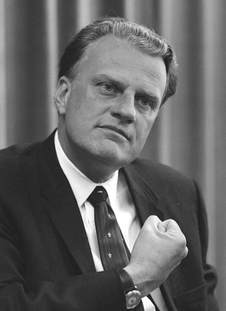 William Franklin Graham Jr.—otherwise known as Billy—was born about twenty miles from where I currently sit. He died about 130 miles away in Montreat, North Carolina. At age 99, he was one of the most influential preachers and evangelists of our time. When people think of white evangelicalism, they often trace it back to Billy Graham. He and I share many things: our home state, our evangelical label, our passion for the Gospel. Even in his death, he is still teaching me new facets of the faith. Still, a part of me struggles with the legacy he leaves behind. To be honest, this is a hard article to write: on the one hand, I sincerely admire Mr. Graham and am so grateful for the ways in which he testified to who Jesus Christ was and is and ever will be. But there is within me a desire to be honest, open, and even vulnerable as I attempt to eulogize without euphemizing, illuminate without idolizing — and I sincerely hope that when I die others will do the same for me. So here I lay out three lessons to learn from Billy Graham’s Legacy, and at the end a final thought on death in the Christian community. Three lessons to learn from Billy Graham’s Legacy 1. Every human being is flawed—even your favorite spiritual leader We know that ‘None is righteous. No, not one.’ As Romans 3, Psalms 14 and 53 tell us. This may be the most challenging and the most critical tool of our time as Christians in today’s theological and political landscape. It’s easy to find flaws and then exclude someone from the faith. We must wrestle against this temptation on both sides. Whether it’s the conservative arguing that there is no room at Christ’s table for the gay couple or the liberal arguing there is no room at Christ’s table for closed-minded Christians, not one of us has a fully robust and perfect Christian theology that allows us a seat at that table. Indeed it is Christ’s blood alone. There are several issues I have with Graham including his narrowed focus on personal salvation rather than communal shalom, his disturbing words about Jewish Americans (that yes, he did apologize publicly for), and his judgmental and conversion-fixated views about homosexuality. But I still have much to learn from the man who for 60 years preached to hundreds of millions of people all over the world. Graham was intentional about seeking out unconventional relationships such as one with Californian gang boss Mickey Cohen, North Korean President (at that time) Kim Il-sung, and Kremlin officials in the Soviet Union — an amazing example of living out Jesus’ words, “Love your enemies.” Graham befriended Martin Luther King Jr. who once said—according to Graham’s website—that Graham’s influence played a role in King’s success with the Civil Rights Movement. Graham is quoted as saying, “Christianity is not a white man’s religion, and don’t let anybody tell you that it’s white or black. Christ belongs to all people; He belongs to the whole world.” John Perkins gives a beautiful testimony of what Graham did for racial reconciliation saying, “Racism is not compatible with the Christian faith, and Billy Graham and I were partners in removing ropes of segregation and replacing them with a foundation of love and brotherhood.” Perkins says that Graham regretted not doing more, and humbly confessed this to him. Graham is noted for not speaking to segregated audiences in the 1950s, and even paid King’s bail once in 1960. Would I have done the same? I certainly hope so, even if it came at losing support of a platform base. Yet critics call him out for not doing more toward pressuring for legislative changes within the Civil Rights Movement. The Guardian went into further detail in this critique: Once leaders like Martin Luther King Jr began practicing civil disobedience and asking for the federal government to guarantee African Americans’ rights, Graham’s support evaporated. Within days of the publication of King’s famous 1963 Letter from a Birmingham Jail, Graham told reporters that the Baptist minister should “put the brakes on a little bit”. He criticized civil rights activists for focusing on changing laws rather than hearts. Today, many white Southern preachers I know respond to the racial tension in America with simplistic narratives of “We don’t have a skin issue we have a sin issue.” I wish I could say that Graham would immediately and ardently cut through that thinking and direct people to the Gospel that has something to say to our racially unreconciled world. While not negating what he did do when it comes to racial reconciliation, the theology he ascribed to prevents one from getting too involved. His words here remind me too much of the skin-sin argument. “If the church wants high, moral standards in the nation and a new social justice, then let the church get back to preaching the simple, authoritative Gospel of Jesus Christ in the power of the Holy Spirit,” he preached on his radio show The Hour of Decision in 1967. In some areas Graham was hyper-aware of the need of the Gospel and his need to live it out, while in others he wasn’t. I think that can be said of all of us. This is why diversity is non-negotiable. We need people in our lives from diverse Christian backgrounds to speak to our theological blind spots. The Global Church is the Bride of Christ, and when we do not include all of her, we have an incomplete picture of who she is. If we want to move forward in Christianity, we must be able to ‘chew on the meat and spit out the bones’. There is no boneless sermon; there is no flawless preacher. 2. Christianity Shouldn’t Be an Oligarchy Circling back to Graham’s words on how Christianity is not the white man’s religion, we must also recognize that whether intentional or not, white evangelicalism rose precisely because of Billy Graham’s influence in America. Most white, southern congregations will ascribe to similar views of the Bible. Many Southern Baptist churches reference the Billy Graham Evangelistic Association (BGEA) for answers to biblical questions. Many southern congregations do not think twice about supporting BGEA’s sister organization (spearheaded by Billy’s son Franklin Graham) Samaritan’s Purse, despite the damaging effects of Operation Christmas Child on developing nations, and the perpetuated white-savior-like images that come from this program. In Charlotte’s white evangelical landscape, there’s almost an unwritten rule that you shouldn’t speak up against the Grahams. This should be a warning for us. If we want to move forward in Christianity, we must confess and lament our own sins, allow others to lovingly call out our sins, and lovingly reciprocate. 3. Billy Graham is the Father of Modern White Evangelicalism While Billy Graham is not the only influence over white evangelicalism, he certainly is one of the largest modern influences we can point to. Certain aspects of his life resonate with what we see in today’s evangelical landscape. If we want to move forward in Christianity, we must see who we are and see who we aren’t. A. We back down from social justice issues when things get hot and platforms are at stake. The Raleigh News & Observer said this: In the 1960s, Graham was criticized for not marching with Martin Luther King Jr. Uncomfortable with some of King’s protests and arrests, Graham shied from bold pronouncements. “Billy Graham was always non-confrontational,” said biographer Martin. “He felt everybody ought to be nice.” Growing up in conservative evangelical Christianity, being nice was often the holy grail. But I remember reading a John Eldridge book that said something to effect of “Mr. Rogers wouldn’t have been crucified.” Nonetheless, being nice is still a subtle commandment of evangelicalism. We must knock down our idol of niceness and make room for a countercultural Jesus who cursed fig trees, broke traditions to heal people, and tethered himself only to God the Father. B. We focus on conversion more than on discipleship. While one can certainly argue that many of those who were converted at one of Graham’s crusades have since become disciples (praise God!), we must also note that discipleship costs a lot more than a raised hand and a bowed head. Modern evangelicalism is often more concerned with width of converts rather than depth of discipleship. We must knock down our idol of number lust and make room for a Jesus who cared about the heart, soul, mind, and strength of every human being he interacted with. C. We are good at celebrity Christianity. The celebrity Christian will end up — intentionally or not — creating clones if he/she is not intentional about diffusing such from happening. The New York Times obituary on Feb. 21 said, “In his younger days, Mr. Graham became a role model for aspiring evangelists, prompting countless young men to copy his cadences, his gestures and even the way he combed his wavy blond hair.” One can argue this isn’t Billy’s fault. I agree; however, we must recognize that it happens and diffuse it when we can. Unfortunately, white evangelicalism has continued in this trend: it has been written that Sovereign Grace Ministries pastors would mimic C.J. Mahaney’s style and preaching cadence (and I can attest to this first-hand). I’d also say that, once again, living in the Charlotte area, I see pastors here and in other states who want to mimic the ministry style and preaching cadence of Steven Furtick. Originality and authenticity may get a Christian leader to a certain position, but those qualities don’t seem to produce an end goal of megaphones and megachurches. We must knock down the idol of celebritism and make room for a Jesus who was nothing like the king the Jews imagined themselves waiting for. Billy Graham leaves a legacy for all of Christianity to wrestle with. One that in so many ways ushered in a new era of American Christianity. One that allowed millions of people to hear the Good News of Jesus Christ. I am forever grateful for that. There is much he left us to build upon, and much he left us to do. May we imitate Christ as we seek to continue building the American Church. One Final Thought: The Grave Requests the Truth It’s interesting that we quote Jesus’ words “the truth will set you free” when it is convenient for us. The truth about each of our human, imperfect lives is not easy to wrestle with. We are sinners and saints. That is also the truth of the Gospel, which I often say is both terrible and terrific. It is terrible when it reveals and confronts the evil within us; terrific for it call us out of that evil and gives us a new identity as child of God. When I was a student of journalism, I remember my wise professor warning us about eulogies. “It’s easy to glorify the dead,” he said. And he challenged us to write balanced eulogies, a task that supplies a demand no one seems to want. In piecing together this article, it is interesting that the news outlets like CNN, New York Times, BBC, and Guardian have no issues pointing to the good and the bad of Graham’s life, but the Christian publications I sought seem to only glorify his life. It begs the question: should we not, even in death, be the best truth tellers?[1] If we cannot speak the truth about the nature of human legacies (that they are all tainted to some degree) of those who have gone before us in the faith, what does it say about those who will come after us? _________________________________________ [1] I get that many reporters were scrambling today to piece together the eulogy of a great man, but nonetheless I do wish I saw more Christian-authored pieces that offered a more balanced perspective of his life. 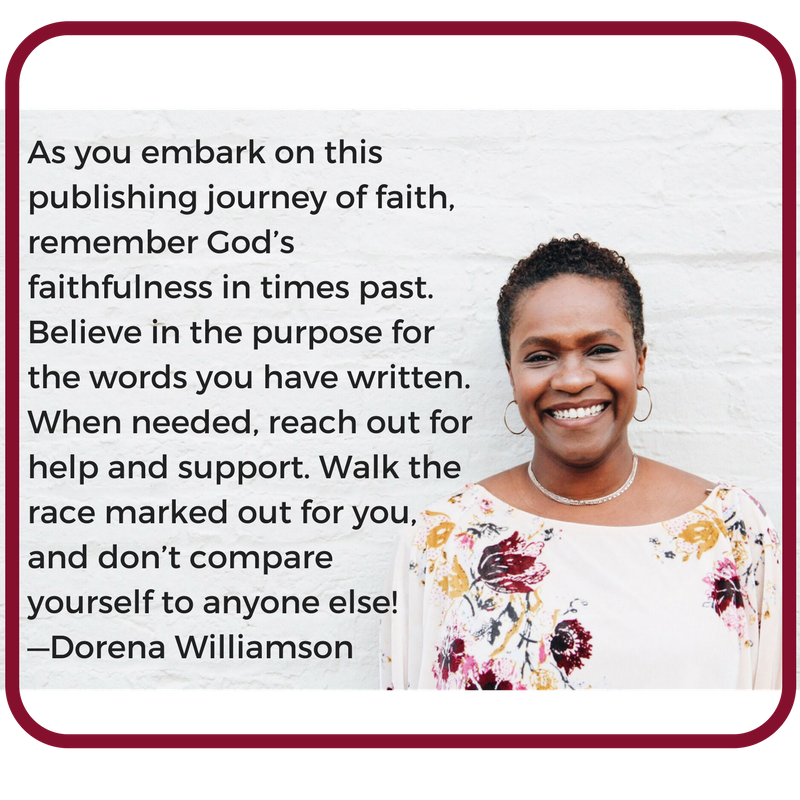 What was the catalyst for you writing ColorFull? In early 2016 Mattel and American Girl expanded their doll lines to include more diverse skin tones. Having bought dolls for my 3 daughters growing up, I was very happy about this. But I also felt frustrated that these companies could see the need for more racial representation while Christians remained in colorblind mode. I longed to help parents have conversations that celebrate how God intentionally made our features. I drew from journal entries I had made during a difficult ministry season, and formed this story. What was the most difficult part about the publishing process for you? Learning how to query and persevering after getting closed doors. It was hard to stay motivated after Christian publishers kept responding that there was no market for a book like this. I wanted to yell at them, “Duh, that’s why I wrote it!” I assumed secular publishers would be more open to a diverse book topic; but those doors didn’t open either. For a short time, I also considered self-publishing. Because I wasn’t talking publicly about the book & publishing process, often I was temped to just put it on the shelf. I just kept believing since God gave me this book vision, He would open the right door at the right time. Did you have ideas about what the illustrations should look like and how did those ideas align with the illustrators, Ying-Hwa Hu and Cornelius Van Wright? I so wish I were an artist! But I had saved a collection of diverse picture books from my kid’s younger years. In my first editorial meeting I took a few of my favorites that showed the style I favored & the direction I envisioned for ColorFull. That helped us narrow down illustrators and I ultimately choose Cornelius & Ying-Hwa’s style. I am so pleased at how it turned out! What do you hope readers will gain from this book? I hope children and adults will feel a sense of wonder that God made so many wonderful colors on purpose, especially all our skin colors. And I hope black children will be proud to see characters that look like them. Representation matters and this is a book I would have loved to read to my kids when they were young! What is the main concept of ColorFull? Why be colorblind about our skin colors when we can be ColorFull? Be fully aware and appreciative of all the colors God made! How did you grow spiritually from this writing process? As I forged on from closed doors, I found inspiration for more stories. One book turned into a series, which was advantageous when LifeWay’s door opened for me. I saw God’s faithfulness to me and understood the purpose in the process! The refining opened up a treasure chest of writing to share in due time. What advice would you give to others who hope to publish a book? As you embark on this publishing journey of faith, remember God’s faithfulness in times past. Believe in the purpose for the words you have written. When needed, reach out for help and support. Walk the race marked out for you, and don’t compare yourself to anyone else! Is there anything else you’d like to share about this process, being a writer, being a woman of faith? Months ago I heard a message from Lisa Bevere about how God seeds us with desires and hopes, and dares us to dream. That resonated with me because I know God seeded me with this story, watered it with tears and cultivated something beautiful that will in turn, plant seeds into the hearts of our children. This work is a witness that God can take our pain and use it for His purpose. He’s good like that! When is the book going to be available, and where can people purchase it from? ColorFull releases May 1. Visit dorenawilliamson.com to pre-order, or go to LifeWay.com. Book two, ThoughtFull, Discovering the Unique Gifts in Each of Us, can also be pre-ordered.
Piper Huguley is an author of historical fiction featuring African American characters. She is an Amazon bestselling author, winner of The Golden Rose Contest in 2013 and Golden Heart finalist in 2013 & 2014. She is a wife, a mom, and a professor.
Piper has been writing on and off for a long time. “Since I was young,” she said. When her son was born, she took a break from writing. A decade later, when he began spending time at football practice, she got back into writing. For Piper, an essay by Langston Hughes, was a catalyst for her writing: Where is the novel or biographical study of Frederick Douglass who defied death to escape from slavery, defied mob-wrath to resist Jim Crow, defied narrowness and convention to side with woman suffrage in a day when women were considered fit only for housewives, defied the racial chauvinism of both his own race and the whites in his second marriage? In other words, a MAN, strong and unafraid, who did not die a suicide, or a mob-victim, or a subject for execution, or a defeated humble beaten-down human being. Douglass lived greatly, triumphed over his times, and left a flaming pattern for the youth of all ages and all countries. But no Negro writes a novel about him. No, we write about caged animals who moan, who cry, who go mad, who are social problems, who have no guts. We have a need for heroes. We have a need for books and plays that will encourage and inspire our youth, set for them examples and patterns of conduct, move and stir them to be forth-right, strong, clear-thinking, and unafraid. Langston Hughes, The Need for Heroes “Most people know about his poetry, but don’t realize he wrote some great prose too,” Piper said. “A lot of what he says is still true. Where is the great biographical of Frederick Douglass, why has it not been released yet?” When it came to publishing, Piper thought she’d publish in the romance genre. “I always thought it would be romance because I thought that’d be an easy place to get published. After a few years of trying … I began to realize on the Christian side how little African American historical fiction there was published especially by African Americans. I thought, ‘Here’s a niche to be filled, let me go ahead and start filling it,’” she said. Piper is a professor at Spelman College near Atlanta Georgia. “I don’t know why it didn’t occur to me sooner to write historical, as my day job as a professor. It wasn’t something I had to do, it was a backdrop of knowledge. Once I decided to go about doing that, I began researching a particular event, which was the Great Migration: the largest intracontinental migration in the U.S.—how black people left the South and went North and West. Knowing that my paternal family was a part of that, I thought to explore that more and develop a series of stories that would explain that,” she said. As she began developing this historically-based series, she realized the call was bigger than she first thought. “It made me come to understand that I owe a debt to the people who came before me and who weren’t as privileged as I am to be able to speak,” she said. “It really struck me that this was something that needs to be done: to speak for those in the past.” Piper said that her research brought her greater insight into her family’s story. She realized that her paternal grandparents’ family migrated in the same fashion as the larger, communal migration pattern that many African Americans followed at the time. “They moved from western Alabama to Atlanta, then a year later to Pittsburgh. It hit me that the place where they lived was just outside the gates of Spelman College where I now teach,” Piper said. She said that her grandmother talked about Spelman college and often wondered what went on behind the gates of the women’s college. While her grandmother was the same age as some of the students, she was not able to attend herself because she was a wife and young mother. Piper said that she sees that her grandmother’s moves allowed her to find out just what went on behind those gates. Piper found publishing her work was an uphill climb. “I just assumed that publishers would throw their doors open, but it didn’t quite work out that way,” she said. “I targeted Historical Romance within the Christian Booksellers Association (CBA)—I was always looking into the romance genre, but after 3 tries, I realized this was not something they wanted to pursue. They started giving excuses, as to why they wouldn’t publish. I realized then that they aren’t going to publish black people and black characters. Even after a certain amount of what I thought was sufficient market research—that was when I understood: OK. That was what the CBA was going to be about,” she said. “At RWA [Romance Writers of American Conference] in 2013 a very important Christian agent told me that my Christian fiction would not be published for 20 years because of the nature of the CBA,” she said. “When I was on the fourth book in the series, the agent told me why my books would not be published in 20 years. She honestly believed she was doing me a favor by letting me know in an upfront way. She failed to realize or care that I had to go through several stages of ‘winning’ in order to get that appointment to talk to that agent in the first place. It was not part of her thought process, that my story had already been vetted by a certain audience. That is how deeply entrenched racism is by the CBA,” Piper said. Around the same time Piper heard this comment, her mother died. “I received a small inheritance that would allow me to self-publish. So my thought was that if I put my story out there, maybe people would see what it is,” she said. “At that point I had two series. So I thought to self-publish one, and then continue submitting the other. That happened simultaneously. I had given up on the CBA and thought maybe the American Booksellers Association (ABA) would take it as historical, which is what happened,” she said. “The irony is that my sweet, inspirational story found acceptance with a publisher who published all kinds of romance stories, but there was no acceptance for it in the CBA. Even the regular publishing industry has their issues with racism, but they can point to their handful of books by African American authors that they publish every year. The CBA has zero. That is the main thing that I really don’t get: this is not Christian behavior,” she said.
Eight years later, Piper said that this is still going on. “I had someone tell me a couple of weeks ago: Maybe there is nobody [African Americans] writing that [fiction with African American characters]. That’s not true. But now you have self-publishing that shows it’s not true. Maybe self-publishing has made them aware and opened their eyes a bit,” she said.
Piper wishes publishers would read the writing on the wall. “Thoroughly backed up by data by Nielson and by the Census: a more diverse United States is coming, in many ways it’s already here. The strategy of excluding POC [people of color] experiences, authors, editors, and marketers from a company is not a long-term answer for survival. In the years since these things have happened, the CBA keeps shrinking,” she said. Piper has some advice for future/current writers. “It’s crucial in any type of publishing career that you take some time building a platform. People think that is something that can be rushed through, but it cannot. It takes a couple of years, minimum of two, to build a platform and to have your message be consistently articulated on that platform. Even if you are traditionally published they are still looking for you to have that,” she said. “You have to put in a certain amount of time and work, and now I’m beginning to see benefits of that. People expect things to happen instantly, and it’s not instant,” she said. “At the same time, while people are building their platform, they can be working on their craft.” Piper said she isn’t sure if self-publishing the one series actually led to the other series being picked up by the ABA. But one thing she is sure about, “You need to silence the voice that says, ‘You aren’t good enough.’ Continue to believe in yourself because somebody will not believe in you. You have to stand firm in your message, believe in that message, and the power of that message,” she said. Find out more about Piper Huguley by visiting her website and her Amazon Author Page. It is the demon within me that I always knew theoretically was there, but I had never met, that has come out as I work to confront this demonic stronghold.
And I hate that. I hate admitting it is there—inside me. I hate admitting I want to cave in. I’d rather live pretending it's not inside me, only theorizing it probably is. I’d rather run away from this battle. And I hate that. The demon within reveals the coward within. I hate that. But isn’t this what it really takes to truly see the imago Dei? That divine imprint on human beings cannot fully be seen for what it is unless we fully see what we are without it. Who we are without God. Doesn’t it take the coward within to really, actually let God show up? I am the worst version of myself right now in this process. And maybe that is the best thing for me. But I hate it. I hate that. |
Gena's
|

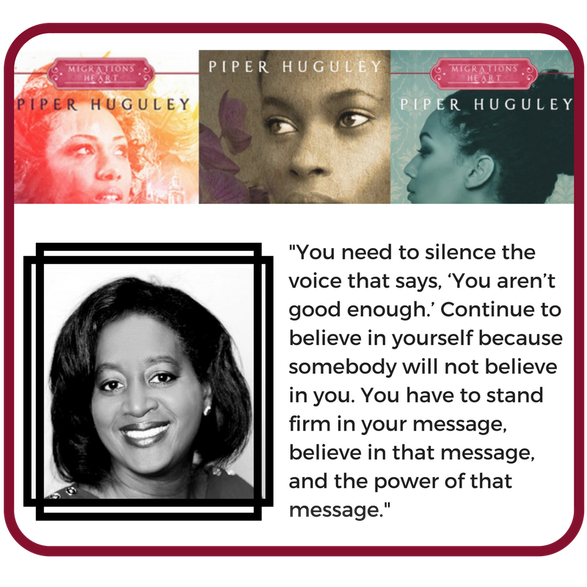
 RSS Feed
RSS Feed

